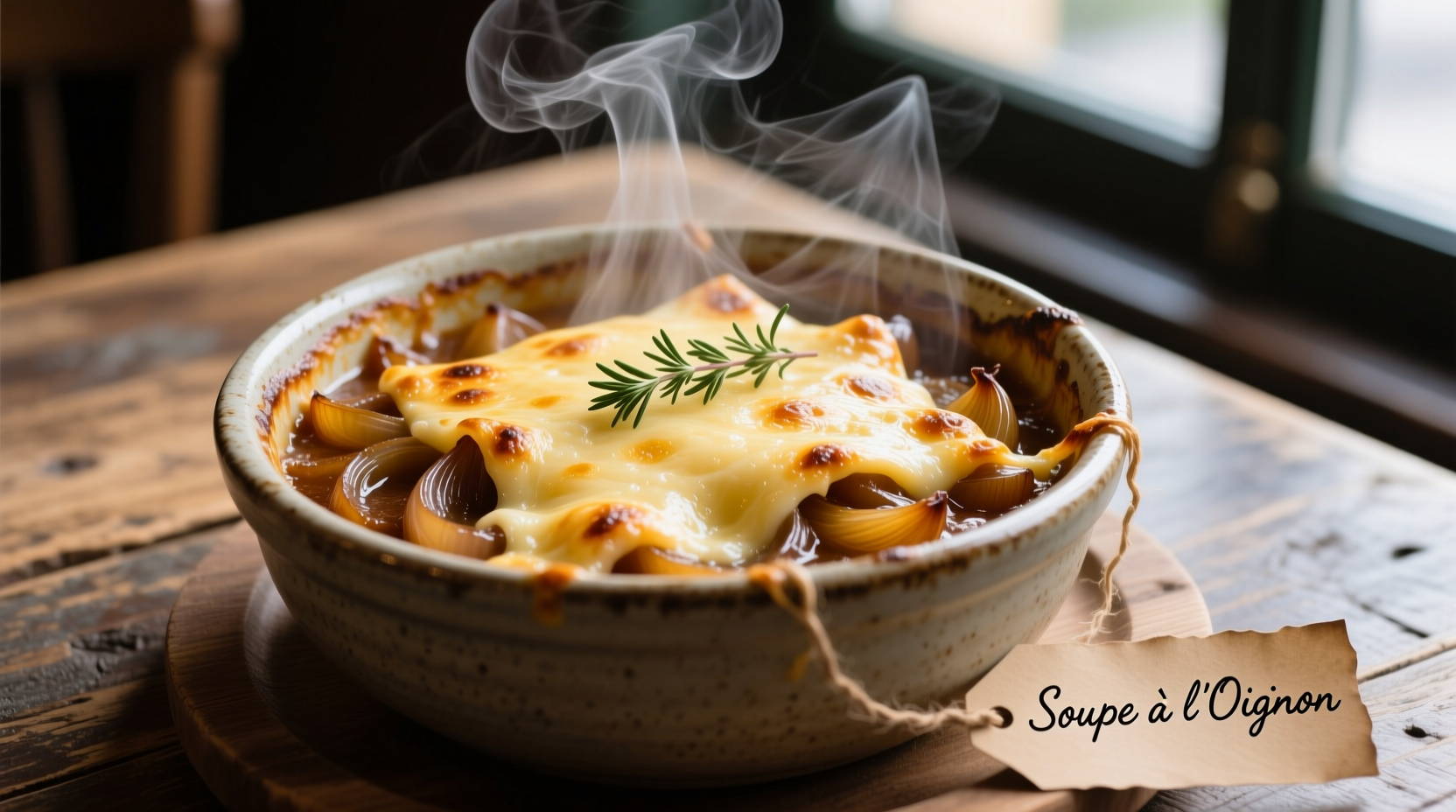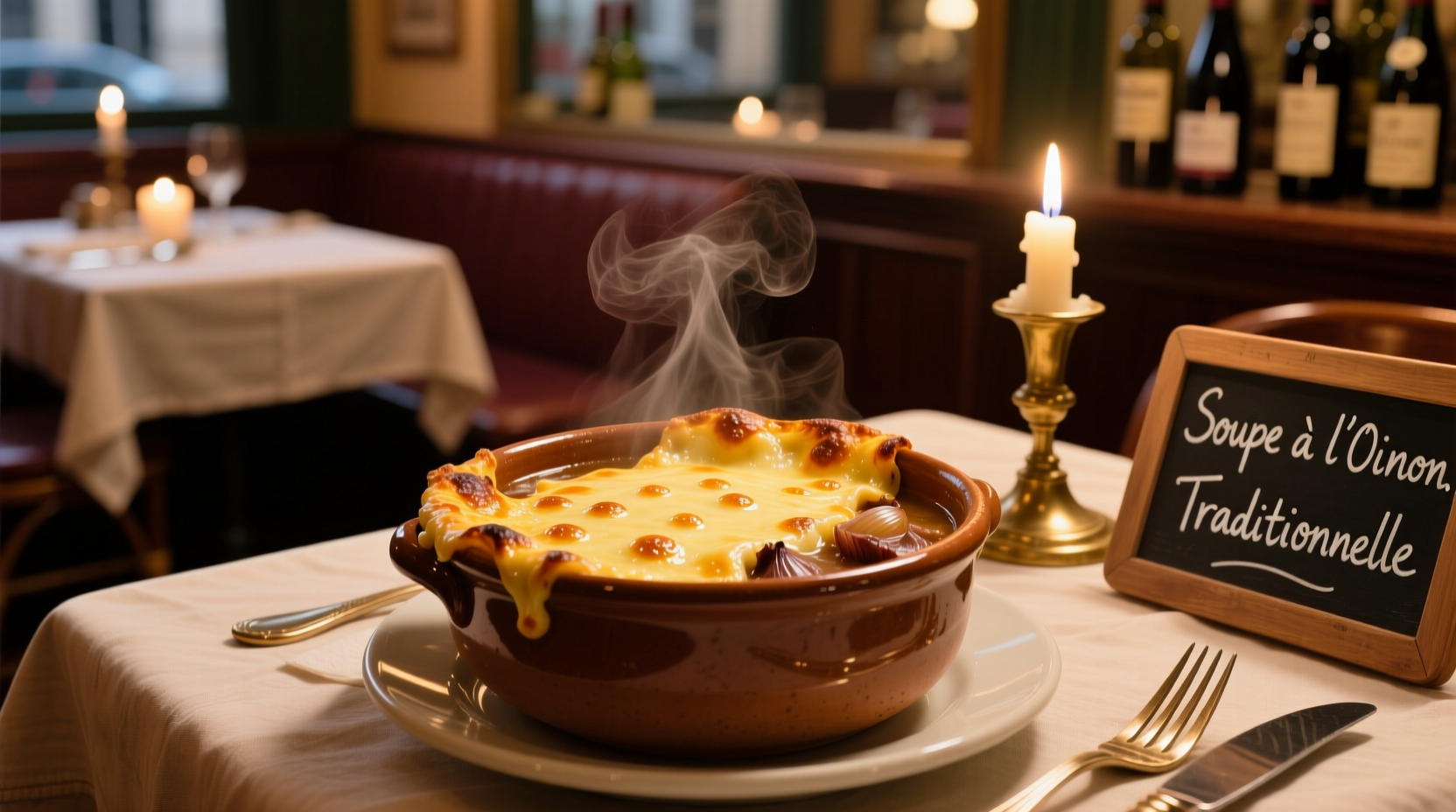Craving that perfect bowl of rich, savory French onion soup but tired of disappointing versions filled with soggy bread and artificial flavors? You're not alone. Many "French" onion soups served locally miss the mark on authenticity. As someone who's tasted hundreds of variations across North America, I've developed a reliable method to find truly exceptional French onion soup near your current location—without relying solely on generic search results.
Why Most "French" Onion Soups Miss the Mark
Before we dive into finding quality options, it's important to understand what separates authentic French onion soup from the common imitations. True "soupe à l'oignon" follows specific preparation methods that many restaurants shortcut for efficiency.
| Authentic Indicators | Red Flags |
|---|---|
| Broth simmered 4+ hours | "Quick" or "express" preparation mentioned |
| Onions caramelized slowly (30-45 mins) | Onions appear raw or only lightly cooked |
| Gruyère or Comté cheese topping | Mozzarella or American cheese used |
| Beef stock base (not vegetable broth) | No mention of stock type on menu |
The Smart Search Method: Beyond "Good French Onion Soup Near Me"
Generic searches often lead to chain restaurants with standardized recipes. Instead, try these targeted approaches:
1. Refine Your Search Terms Strategically
Replace "good french onion soup near me" with more specific queries that attract authentic establishments:
- "Traditional soupe à l'oignon near me"
- "French bistro with house-made French onion soup"
- "Authentic French onion soup Gruyère topping near me"
- "French chef owned restaurant French onion soup"
2. Decode Menu Descriptions Like a Pro
When scanning restaurant menus online, look for these authenticity markers:
- "Caramelized" not "sautéed" onions - Proper French onion soup requires slow caramelization
- Mention of specific cheese - Gruyère, Comté, or Emmental indicate authenticity
- "House-made" or "from scratch" broth - Essential for depth of flavor
- "Beef stock" specification - Authentic versions use quality beef stock, not generic "broth"

3. Analyze Reviews with French Onion Soup Focus
Most diners don't specifically mention French onion soup in reviews. Use these search operators within review platforms:
- On Yelp:
french onion soup -review:bad -review:disappointing - On Google:
site:google.com "french onion soup" "melted cheese" -"too salty" - Look for mentions of "caramelized," "rich broth," or "Gruyère" in positive reviews
Seasonal Considerations for French Onion Soup Quality
French onion soup isn't just a year-round menu item—it has seasonal variations that affect quality. Understanding this timeline helps you identify restaurants that take authenticity seriously:
| Season | Traditional Approach | What This Means for Your Search |
|---|---|---|
| Winter (Nov-Feb) | Peak season for French onion soup in France | Most authentic restaurants feature it prominently; best chance for quality |
| Spring (Mar-May) | Transition to lighter fare | May still offer it, but check if it's "seasonal" or year-round menu item |
| Summer (Jun-Aug) | Rarely served traditionally | Year-round availability suggests it's not treated as a specialty |
| Fall (Sep-Oct) | Return as temperatures cool | Look for restaurants that reintroduce it as a "fall special" |
Avoiding Common French Onion Soup Traps
Even at otherwise excellent restaurants, French onion soup can be an afterthought. Watch for these warning signs:
- The bread isn't properly toasted - Authentic versions use thoroughly toasted baguette that maintains structure
- Cheese is merely sprinkled on top - Traditional preparation features a proper cheese crust formed under broiler
- No visible onion strands - Proper French onion soup shows distinct caramelized onion pieces
- Served in standard soup bowls - Authentic versions typically use specialized ceramic crocks
When Location Matters Most for French Onion Soup
Not all neighborhoods have equal access to authentic French onion soup. Consider these location factors:
- Areas with French expat communities - Often support authentic French restaurants
- Near culinary schools - French-trained chefs frequently work at nearby establishments
- Historic districts - May have older restaurants preserving traditional methods
- Avoid tourist-heavy zones - Where menus cater to generic expectations rather than authenticity
Final Verification Before You Visit
Before committing to a restaurant, make one quick verification call:
"Hi, I'm calling to ask about your French onion soup preparation. Could you tell me if the onions are caramelized from scratch, what type of cheese you use on top, and whether the broth is house-made?"
Restaurants proud of their preparation will happily share these details. Hesitation or vague answers suggest it's not a specialty worth your time.











 浙公网安备
33010002000092号
浙公网安备
33010002000092号 浙B2-20120091-4
浙B2-20120091-4